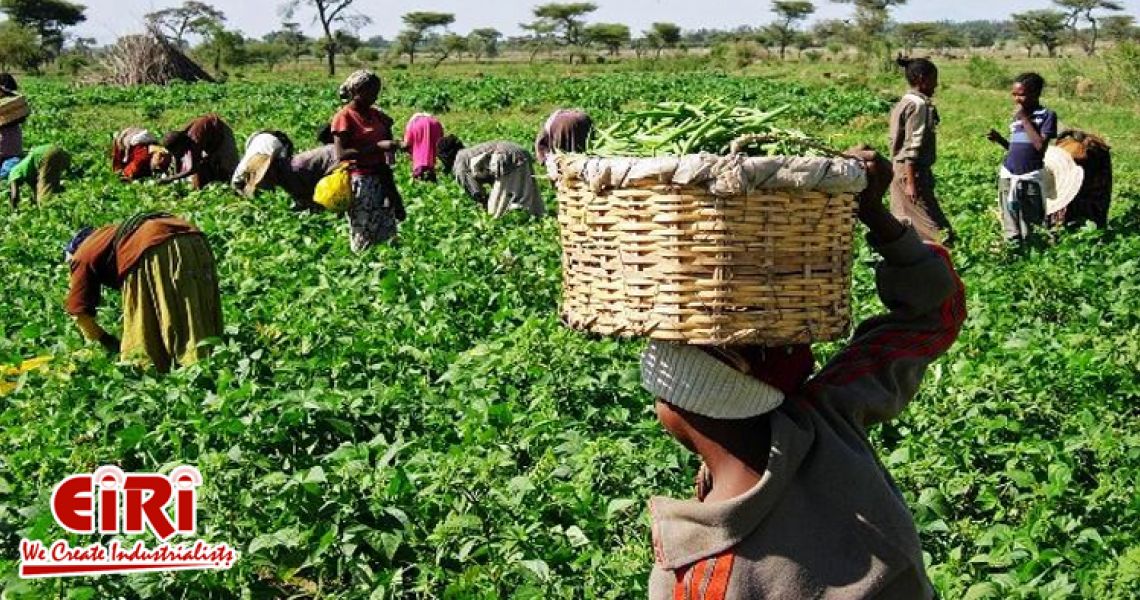Agricultural business in the Philippines

The agriculture business in the Philippines encompasses five subsectors production of a crop, animal (poultry and livestock), fishery, logging and forestry, and agri manufacturing – support services. Agriculture farming is taking into transformation as a thriving agribusiness and is acquiring technologies. In the Philippines, agricultural farming includes getting training to use sophisticated techniques in farming, establish transport, create stable supply chains and agricultural infrastructure, research and development, besides reliable property.
Current scope
Agriculture activities are helping in increasing the agribusiness outputs and diversifying contributing to rural growth and development, thereby the Philippines government. The agribusiness sector largely contributes to the Philippines economy’s industrial development. Transforming Philippines agriculture into a high-growth, the dynamic sector is essential to reduce poverty, speed up recovery, and promote growth. The focus on the Philippines is on agriculture after the COVID-19 pandemic to ascertain there is a vibrant rural economy, nutritious and affordable food, with strong food value chains.
Future forecast of the agro industry in Philippines
The agricultural sector of the country is modernizing and now the Philippines prioritize this agenda. It is because, without effective agri-food systems, no country can transit from middle to high-income status. There may be a few exceptions where the countries have natural rich resources, but others must transform their agricultural sector.
The new vision of the country for agriculture is diversification and using modern technologies. Though transforming food and agriculture systems is challenging, the Philippines can overcome the challenge, as it is well equipped. The Philippines’ vision is to have a food-secure country and prosperous farmers. Realizing this vision requires dedicated efforts among industry stakeholders concentrating on major agri-fishery, to empower farmers continuously, agricultural entrepreneurs, fisherfolk, and the private sector to promote profitability and agricultural productivity, considering resilience and sustainability.
Philippines grains, Philippines sugar, Philippines Dairy, Philippines livestock markets are analyzed and forecast to 2025. Further, Philippines agriculture production including wheat, corn, Barley, Rice, Sugar, Milk, Butter, Cheese, whole milk, poultry, beef, and pork production is forecast from 2016 to 2026. Demand for all these agriculture commodities is also forecast during the period.
The agriculture business sector is largely contributing to the Philippines economic industrial development. Its strategic actions provide the small farmer’s support, improve production by offering access to technologies, and finance aiming to fund the relevant projects. It is necessary as local agribusinesses contribute to the sustainable food security of the country.
The new report was focusing agricultural development. It was about shifting the heavy focus towards improving overall competitiveness, resilience, and rural sector sustainability and not focusing on specific crops. In the past, most time was spent on selecting goods and crops, the inputs and subsidies as planting materials, fertilizer, and machines.
The reports say there are paradigm shifts, and it is crucial to fulfilling the domestic and global market opportunities. The report says interventions such as farm consolidation featuring farming cooperative schemes, e-commerce, better extension services, and investments in the start-ups of agribusiness will help advance Philippine agriculture towards modernization.
This shift in agriculture will increase farmer incomes, create jobs, and ensure food security, thereby meeting the climate change new challenges. There is the support of the World Bank for the Philippines’ agriculture sector. They include long-running programs, thereby reducing poverty and raising agricultural poverty. They are also focusing on enhancing farm and fishery productivity.
Micro and small agri businesses and their access to financial services
Agribusiness joins a global public-partnership coalition in the Philippines to provide mentorship to micro-enterprises, farmer-based, and give technical assistance.
The key pillars are in providing technical and financial assistance to modernize the facilities of processing and promote the selected capabilities of micro-enterprises. They help in meeting the FDA compliance standards in the Philippines. These interventions were implemented in the project period of 2020-2024, thereby leading to increasing micro-enterprises revenue as the end goal and increasing smallholder farmers’ household income. However, the PSAG has assured to provide technical and strategic guidance, besides mentoring micro-enterprises having smallholder farmers as members and require investment and technical support.
In the Philippines agriculture sector, MSMEs are the driving force in stimulating the increase in the farmer’s income, adding value to farm commodities, and creating in rural areas various economic opportunities as poverty remains high. The MSMEs’ ability to enable agricultural potential is vastly constrained by limited vulnerability and financing access to natural disasters and external shocks. Climate change also affects the agriculture sector and so the project is working to help fill the gaps in technical and finance so that the workers and the farmers in the agriculture sector become successful entrepreneurs.
Transforming small farmers into agripreneurs requires access to equipment, capital, and facilities. Availing of a loan from any financial institution for a small farmer has no or low chances.
In response to the COVID-19 pandemic, the ANYO (Agri-Negosyo) launching was to provide the small farmers and fishers with zero-interest loans. It also included providing loans to registered small and micro agri-fishery enterprises, partnerships, sole proprietors, associations, corporations, and cooperatives. Individuals eligible can boron Php300, 000 as a maximum loan, while registered micro and small enterprises can avail of loans as per their assets ranging from Php 300,000 to Php 15 millions. This loan repayment period is set to five years.
CLICK HERE to know more about List of Agriculture Business in the Philippines










